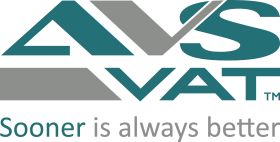There are always blurred edges around any VAT relief which is why this is where the danger lies. Time and again we see cases in the tribunal where someone has assumed there is no VAT but HMRC disagree. One of the most impenetrable blurred edges surrounds healthcare in terms of what is exempt and what is not, so that VAT actually falls due.
Two recent and quite different cases centred on this question of ‘what is healthcare?’ and go to underline the importance of never assuming that just because the supply has close links to healthcare, that it necessarily means the supply is VAT exempt.
Window to the Womb (Franchise) Limited & Ors [2020] TC07687 supplied ultrasound scans and 4D images of foetuses. HMRC’s challenge that the primary purpose of the supply was not the protection of health was centred on the company’s marketing focus on the benefits being baby bonding and 4D imagery and therefore VAT fell due at 20%. Whereas the company successfully argued their services went further than simple imaging for which they would only need Ultrasound Technicians. Instead all employees were qualified Sonographers and they provided exempt medical care in the form of diagnostic scanning.
It is simply not enough for the supply to be heath related. Exemption does not always apply and should never be assumed.
This argument that a non-essential health-related service, even if clinically delivered, is VATable has been seen before. It follows taxpayers operating in the healthcare sector need to be wary when describing the nature of what is being delivered. It is vital to bear in mind that to be exempt medical care the principal purpose of the service must be to diagnose, monitor, treat or prevent illness. It is also important to ensure that employees hold appropriate medical qualifications, which proved to be a positive feature factor in this case succeeding.
Mainpay Ltd [2020] TC07690 (an umbrella company) fought a challenge from HMRC that the services of hospital consultants placed in the NHS were not exempt medical care but VATable supplies of staff. This is an ongoing issue and one that affects a great many healthcare agencies – whether they realise that or not!
This is not the first case centred on this argument the crux of which is ‘who controls the worker?’. If as HMRC contended the consultant came under the control, direction and supervision of the NHS Trust, then Mainpay was making a VATable supply of staff. Conversely Mainpay argued that it was delivering an exempt supply of medical care. There was also a similar argument involved relating to supplies of GPs with HMRC again arguing that this was also a supply of VATable staff and not exempt medical care.
Mainpay argued that while it did not have control over clinical decisions, which had been a crucial factor in previous cases, the high grade of the personnel in question meant it should be distinguished. The consultants operated with considerable autonomy whereas previous cases focused on more junior staff with less autonomy.
Unfortunately for Mainpay the tribunal considered that as the consultants effectively became part and parcel of the NHS Trusts and it was the Trusts who were providing medical care to patients, operational control must rest with the Trusts who had incorporated Mainpay’s consultants in the same way as they would with a consultant who was directly employed. As a result the tribunal held that that Mainpay’s argument failed on both consultant services and GP services, which could have significant repercussions in other organisations.
The big issue here is that VAT can be due on Health Related Services. Arriving at the right answer for VAT involves a detailed disection of what is being delivered and how the parties interact. The facts and circumstaces need to considered objectively and not optimistically. It is simply not enough for the supply to be heath related.
Exemption does not always apply. Any businesses operating in the temporary healthcare arena need to sit up and pay attention.
The only way to avoid problems is to think about what is being supplied in advance of committing to how VAT will be handled. Remember sooner is always better. If you’re ever not sure, why not give us a call?
Originally drafted for ICPA June 2020 magazine

